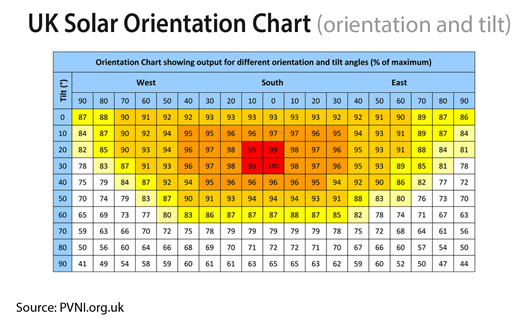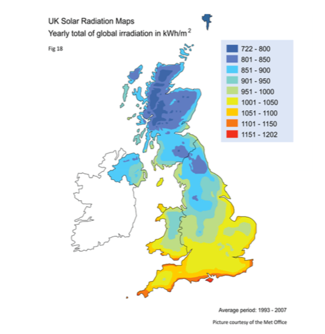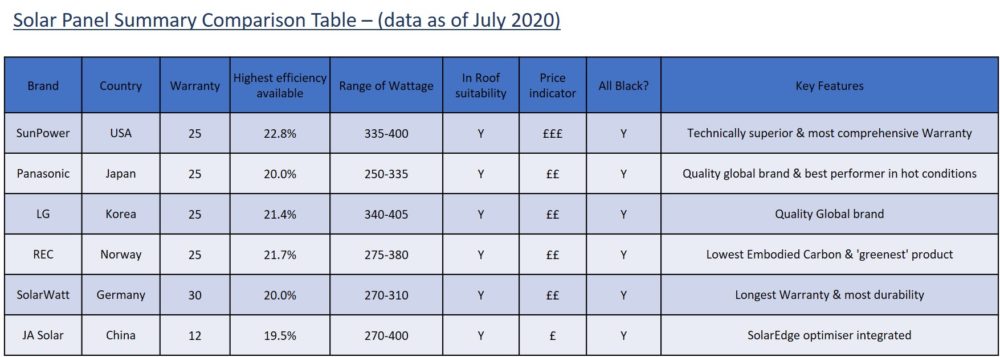FAQ – Solar Panels

All your FAQ questions answered on solar panels, see our other sections for other FAQs – solar storage, EV Charging, General Queries.
Q: What is FIT and SEG?
A: The Feed in Tariff (FIT) closed in April 2019 and has been replaced by the Smart Energy Guarantee (SEG). If you had solar panels fitted prior to April 2019 then you will continue to receive payments from your energy company up to 20 years after the install date. For all new installations consumers can benefit from the SEG, which pays an amount of x pence per Kwh exported, the amount varies by energy company and it is worth considering and researching when comparing energy suppliers.
Q: How reliable are solar panels?
A: They are a very reliable technology, most manufacturers provide a warranty that their solar panels will still be producing 80% of their design power output after 25 years. Our projections factor in a 1% per annum decrease in solar panel output
Q: Is your work covered by any warranty?
A: Our workmanship is guaranteed for a period of 2 years during which time we will respond to any problems at no cost to yourself. As members of the Real Assurance consumer protection scheme (RECC) customers are also protected by an insurance backed warranty scheme. See general queries FAQ for more information.
Q: Do solar panels need cleaning?
A: No. The specially designed glass coatings are designed to be self-cleaning through the action of rainwater. If, however you live in an area where regular and significant amounts of dust / particulates are generated you may wish to arrange for your solar panels to be washed after any such episodes.
Q: Can solar panels be temporarily removed for roof maintenance / retiling situations?
A: Yes and we can arrange this. They will need to be electrically disconnected from the inverter and removed from the mounting frame by a suitably qualified electrician as they remain ‘live’ whilst exposed to sunlight.
Q: Will the solar panels generate all my electricity needs?
A: How much of your needs can be met by the system will depend on both the size of the system you install and how much electricity you use. In most cases a solar panel renewable energy system will not meet all your needs all year round. However, it is possible that the income from the Smart Energy Guarantee (SEG) will go a long way towards meeting both your electricity and gas bills. See also questions on fitting storage battery systems.
Q: Can I heat my hot water with Solar Energy?
A: Yes it’s possible to divert excess energy directly to your hot water tank.
Q: What is the payback, when will be the investment in Solar panels pay for itself?
A: This can vary significantly depending on a number of factors. We can illustrate in our quotation to you the likely payback of the design we propose for your property.
Q: Can I see how much energy I am generating and using?
A: The latest app technology means you can see on your phone how your solar panels are performing, how much energy you are using – exporting to the grid, to your electric car or your solar storage battery – all in real time.
Q: Is now the right time to invest in Solar energy?
A: Yes, the cost of solar panel manufacture has reduced significantly in recent years and this means you can see savings on your energy use as well as helping the environment.
Q: Will my panels efficiency be affected by shading from trees and buildings?
A: It has an important impact on how efficient your panels will be, we will advise and calculate the impact.
Q: How long does it take to install?
A: Normally 1-3 days depending on the size of the installation.
Q: Where on my house should I think about placing solar panels?
A: You can consider South, East and West facing roofing as being suitable and we will advise. See the chart for guidance, the angle of the roof is also a key consideration. See chart

Q: Where in the country do Solar panels work best?
A: The sunny South East is one of the very best places in the UK to make the decision to install solar panels. See UK Solar Radiation Map.

Q: What is a KWP?
A: The size of an installation is measured in kWp (kilowatt peak). It is the amount of power produced under laboratory conditions, which broadly equate to bright sunshine. So a 2 kWp system will produce 2 kW of electrical power in bright sunshine. The more efficient the solar panels are the more light they will convert to electricity.
Q: What is an Inverter?
A: The inverter is the brains of the system. It converts the DC electricity produced by the solar panels into AC electricity for use within the building. It also matches the phase of the AC electricity produced to the phase of the grid, ensuring complete compatibility and the ability to export excess back to the wider electricity network.
Q: Is Pigeons nesting under Solar Panels an issue?
A: Pigeons nesting under your panels is one of the most frustrating issues faced by solar households. But there is an easy solution. Pigeons are always looking for perfect places for nesting. That’s the reason that they nest under your solar panels, which are orientated to receive all the solar energy which they can, are the perfect place for them. To prevent this, we can fit specially designed covers to surround your panels.
Q: Does fitting solar affect the value of my house?
A: The value of your property will be in the opinion of the prospective buyer. However, solar PV will increase the energy performance rating of the property (EPC rating) and an efficient home is seen as more desirable. To give yourself the best chance of increasing the value of your property with solar it is important that you look for a reliable installer who will be available in the future to respond to any questions or issues.
Q: Why should I choose SogoSolar?
A: We have 10 years of experience in fitting solar panels, we will listen to your requirements and design a system that suits your lifestyle and budget. We have access to all the leading brands and can ensure an honest, transparent approach which includes monitoring system performance for two years from installation. We are accredited to all the leading brands and governing bodies.

